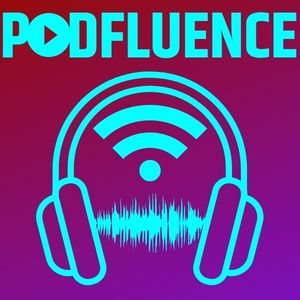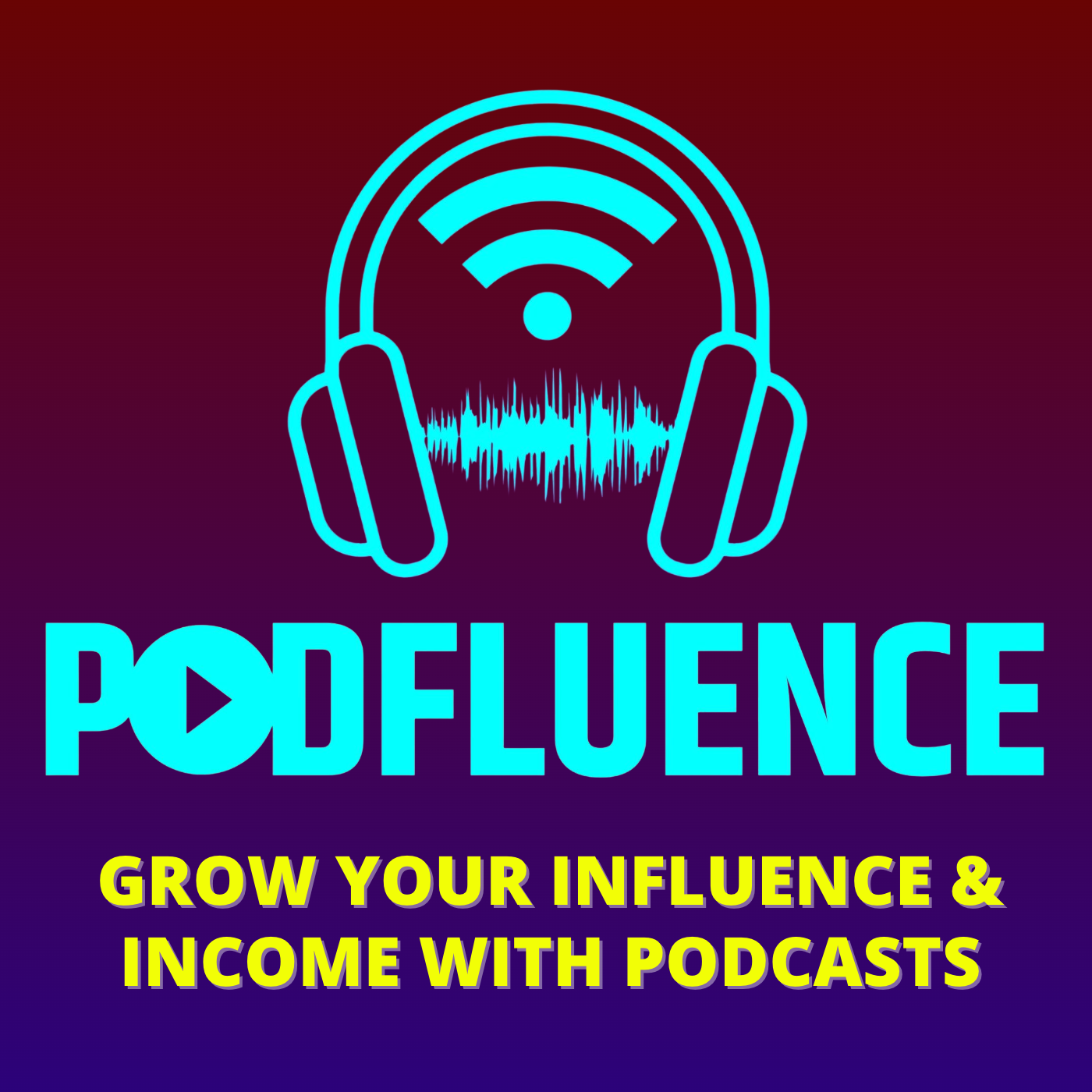Episode 172
When Hosts Become Ghosts
Why didn’t your interview get published?
Why do hosts sometimes ghost their guests?
Maybe you’ve had the experience of being a guest on someone else’s podcast and later on discovering that episode not only hasn’t been published but the host isn’t responding to messages. Let’s take a look at some of the reasons this happens and what you can do about it.
Is it just the host to blame when an episode doesn’t get published? What can you do as a guest to make it more likely that your episode will get published and that the host won’t ghost you?
Enjoying the content? Join me for the Podfluence Weekly newsletter HERE to get articles and show updates every week.
You are warmly invited to join other coaching & speaking professionals who are building their authority through podcasting in the Podfluencers Facebook Group and pick up your free download of The Complete Podcast Guest Superstar Framework
2 things fill my heart with joy: one is people sharing my episodes because they've been helpful and hopefully entertaining, and the other is people leaving reviews for Podfluence on Apple Podcasts or PodChaser. Either of these will earn my ever-lasting gratitude and both might just get you on my Christmas card list.
Transcript
Welcome to Pod Fluence, the podcast that helps coaches, consultants, and speakers
Speaker:grow, influence and income with podcasts.
Speaker:My name is John Ball and my mission is to give you, as a professional
Speaker:business coach or speaker, all you need to build professional influence
Speaker:and grow your following with podcasts so that you can have a thriving
Speaker:business and create raving fans.
Speaker:You may sometimes find yourself wondering why that interview you recorded didn't
Speaker:get published or why that host is no longer responding to your messages.
Speaker:In this episode, we're going to attempt to understand why certain
Speaker:interviews don't get published and why some hosts may ghost you and
Speaker:what, if anything you can do about it.
Speaker:Maybe you've had the experience of being a guest on someone else's podcast and
Speaker:later on discovering that that episode not only hasn't been published, but that the
Speaker:host isn't responding to your messages.
Speaker:Well, let's take a look at some of the reasons this happens and what
Speaker:you may be able to do about it.
Speaker:Is it just the host that's to blame when an episode doesn't get published?
Speaker:What can you do as a guest to make it more likely that your
Speaker:episode will get published and that the host won't ghost you?
Speaker:So all that's coming up in this episode of Pro Fluence.
Speaker:If you are not already subscribed to the show, please do me a favor.
Speaker:If you are on Spotify or Apple Podcasts, please click the plus button on the
Speaker:podcast that will get you following the show so that you won't miss any
Speaker:upcoming episodes and amazing interviews to help you create your Podfluence.
Speaker:Right now, pick up here he ears, and let's get on with the show.
John Ball:I do love it when people shout out my podcast episodes and articles.
John Ball:I mean, who wouldn't?
John Ball:It doesn't happen all that often, but when it does, I really appreciate it.
John Ball:Thank you then to John Schembardi for sharing out one of my earliest LinkedIn
John Ball:articles in the PodFluence weekly newsletters about bad podcast guests.
John Ball:It's a topic that I probably need to update my thoughts on.
John Ball:John pointed out that podcast hosts can also be bad, and although I have touched
John Ball:on that topic many times, I don't think I've ever written a full article on it.
John Ball:So that's a topic you've been waiting for,
John Ball:this is your lucky day.
John Ball:So you show up for a podcast interview and you have a good chat with the host.
John Ball:You record for maybe 20 to 60 minutes.
John Ball:Then you thank them for a great interview and part ways until
John Ball:the episode gets released.
John Ball:You wait and wait and wait some more and maybe even a
John Ball:bit longer than is reasonable.
John Ball:You check their podcast.
John Ball:Perhaps you missed something.
John Ball:Maybe your episode has been published and you didn't notice.
John Ball:You check your emails, nothing.
John Ball:But what can you do?
John Ball:Most likely you are gonna send an email or a direct message and you
John Ball:might get a reply, but then again, you might not, maybe the can will
John Ball:get kicked down the road and you'll just have to wait a bit longer.
John Ball:Or perhaps you'll get told that your episode is not going to be used.
John Ball:That happens.
John Ball:The most likely reasons are that your episode wasn't good
John Ball:or usable, that the show or the host has pivoted on their topic.
John Ball:The podcast has faded or stopped the host.
John Ball:Maybe just got too busy with other things.
John Ball:Now of course there could be any number of reasons, but these are
John Ball:probably some of the most common ones.
John Ball:And I've had all of these things as a host and as a guest.
John Ball:Here's what's important.
John Ball:Don't take it personally.
John Ball:It doesn't mean the host thought you were a terrible guest,
John Ball:although that's possible.
John Ball:You're unlikely to ever get that kind of feedback from a show host, so
John Ball:you might as well presume the best.
John Ball:Most of us are indeed nice people.
John Ball:What I can tell you from personal experiences, giving negative feedback to
John Ball:people who haven't shown up very well as podcast guests is rarely well received
John Ball:if it hasn't been asked for.
John Ball:So I recommend to podcast hosts not to do that unless you are asked.
John Ball:Even though I say you shouldn't take it personally if your episode isn't used, you
John Ball:should still assume some responsibility because it could be an indicator that
John Ball:you didn't do enough research for the show before applying to be a guest.
John Ball:It could also be that you haven't been strategic about
John Ball:selecting shows to guest on.
John Ball:Maybe you didn't build a relationship with the host before or after, and
John Ball:perhaps you didn't add sufficient value to their show or their audience,
John Ball:and maybe you made it all about you.
John Ball:If any of these things are possibly true for you, then it could be time
John Ball:to change your guesting strategy.
John Ball:What I can tell you from most of the podcast guest pitches that I see is that
John Ball:the vast majority of them have not taken an opportunity to check out my show.
John Ball:They have no idea who I am.
John Ball:They have no idea what the show is about.
John Ball:They just want to be on podcasts.
John Ball:They see a show that is perhaps doing reasonably well and maybe has
John Ball:a decent scoring on listen notes.
John Ball:And they want to be on that show.
John Ball:So they're gonna tell you all about how good they are and why
John Ball:they should be on their show.
John Ball:If that's not relevant to you or your topic, why should you care?
John Ball:So it is up to the host as well to be discerning about the guests that
John Ball:they have on, but it definitely is more up to the guest to be selective
John Ball:about the shows that you choose.
John Ball:My goal for you is to become someone that no podcast host could ever
John Ball:dream of ghosting, but I need you to do one little thing for me.
John Ball:Can you do that?
John Ball:I need you to care about their show, not just about your episode.
John Ball:My pal, Chris Ducker told me that he would never have a guest on his show who wasn't
John Ball:a fan of him, his content, or his podcast.
John Ball:So if you are ever looking to get on Chris's YouPreneur podcast, at some
John Ball:point I suggest you start tuning in.
John Ball:I'm a little less stringent myself, although I do still prefer
John Ball:guests who have taken the time to prepare for their appearance
John Ball:and know what the show is about.
John Ball:Don't get me wrong, guests who really know their stuff and know
John Ball:how to deliver it can be great and really valuable for your show.
John Ball:But any guest who doesn't really know who you are, what your show is about, or
John Ball:what your audience really needs is only ever going to deliver what they want to.
John Ball:Hey, Abraham Maslow said to the man with a hammer, everything looks like a nail.
John Ball:If you're using the spray and pray approach to podcast guesting, you should
John Ball:expect many more ghosting experiences.
John Ball:I'm not saying it's right or even, okay, just that it's going to keep on happening.
John Ball:Look at it this way, if you post to social media six times a day, but all
John Ball:those posts are crappy, it's really not gonna do a lot for you professionally.
John Ball:Most people are gonna ignore them, and you're probably wasting your time.
John Ball:Why should it be any different for podcasting then?
John Ball:No one owes you an audience.
John Ball:No one owes you a listen.
John Ball:It is entirely on you to be interesting, valuable, relationship focused,
John Ball:reciprocal, generous, and prepared.
John Ball:This may not be a popular opinion for those who just want to go on
John Ball:as many podcasts as possible and talk about themselves and then
John Ball:expect a following to come from it.
John Ball:Sorry pal.
John Ball:It takes work to do this well.
John Ball:I haven't talked much about this yet, but I recently joined the team at The
John Ball:Speaker Lab with Grant Baldwin initially in their sales team, are now on their
John Ball:coaching team, and my role there is to help students looking to become paid
John Ball:professional speakers to be able to do that well, no matter how much or how
John Ball:well any of the coaching team do our job, no matter how good the learning
John Ball:materials are, and they are really good.
John Ball:None of that matters if the students don't do the work.
John Ball:So if you're going to get up on a stage or be on a podcast or start a podcast
John Ball:or a YouTube channel and it's gonna be about anything and everything, or maybe
John Ball:you're just rehashing other people's ideas or worse yet you are directly
John Ball:copying and plagiarizing someone else's work is not gonna go, well.
John Ball:Add to that, maybe you don't have any charisma, perhaps you dunno how to
John Ball:present and you can't engage audiences.
John Ball:The only way you're going to get anywhere is by cheating or paying to play.
John Ball:Are you okay with that?
John Ball:Well, I hope not.
John Ball:I know I'm getting on my high holes about this, but I have made
John Ball:many of these mistakes myself and they are not failures necessarily.
John Ball:You're doing stuff, you're taking action, but there's a better way.
John Ball:You'd be surprised how little effort it takes in practice to stand head and
John Ball:shoulders above what most people are doing in terms of developing relationships
John Ball:and standing out as a podcast guest.
John Ball:Someone who gets this, oh, so right is Christine Amerman, the Queen
John Ball:of podcast guesting, and you can hear what she has to say about it.
John Ball:On episode 171 of Podfluence.
John Ball:Now with all the recent changes with my working life and messing around with
John Ball:all sorts of different working hours and things like that, my production
John Ball:schedule, both of my newsletter and my podcast, has been somewhat unreliable.
John Ball:As always, I hope to get that back onto a more regular schedule to
John Ball:have the episodes coming out on time weekly and with the newsletters.
John Ball:So if you are not already subscribed to the show, please do that.
John Ball:And be assured, there are still many great guests lined up and some wonderful
John Ball:recordings that I've been waiting for quite a while now to bring to you.
John Ball:And if you prefer your content more in a written style, then
John Ball:definitely check out my newsletter.
John Ball:You can access that through the links in the show notes.
John Ball:So next time on the show I'll be bringing you an interview with Joe Pardavila.
John Ball:And Joe and I recorded this episode a while back.
John Ball:Joe worked in broadcast radio and in podcasting.
John Ball:So he brings some great experience from all of that.
John Ball:As well as information from a terrific book that he's written, and
John Ball:, despite some recording challenges, it was a great conversation.
John Ball:So don't miss it.
John Ball:I will hope to see you next time, so for now, wherever you're
John Ball:going, whatever you're doing, have an amazing rest of your week.


